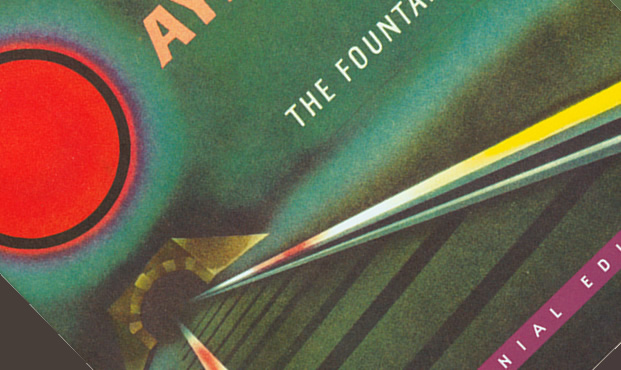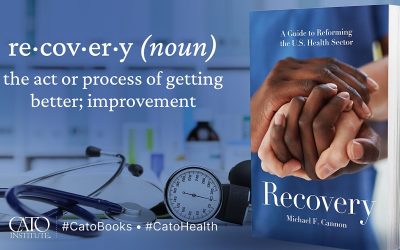“No book that I’ve taught comes remotely close to fostering a more robust exchange of ideas in the classroom.”
This letter is addressed to all young people who’ve read or are about to read Ayn Rand’s epic novel, “Atlas Shrugged.”
I’ve taught “Atlas Shrugged” for fifteen years during which time I’ve witnessed many remarkable things. For example, some 95% of my students report that “Atlas Shrugged” is the best book they’ve ever read. No book that I’ve taught comes remotely close to fostering a more robust exchange of ideas in the classroom. My students typically come to class after pulling an all-nighter debating “Atlas” with their friends, and then they pepper me with dozens of questions. Whether one agrees or disagrees with Ayn Rand’s ideas, few could deny that this is what the college experience is supposed to be like.
During those few weeks each year when I teach “Atlas Shrugged,” I’ve seen hundreds of students become intellectually engaged in ways they weren’t before reading this extraordinary book. The comment I hear most often from students goes something like this: ” ‘Atlas Shrugged’ sums up everything that I’ve always admired and believed but could never put into words.” Ayn Rand’s novel speaks to many students’ deepest values and aspirations: it appeals to their sense of justice, integrity, honesty, and independence, and it appeals to their desire to live in a world where achievement and heroism are rewarded.
To enter the world of “Atlas Shrugged” is to experience a world radically different from today’s. Many of you will find this world exhilarating, and it just might change your life forever.
I know many other professors who teach “Atlas Shrugged,” and their experiences with students mirror my own. Sadly, though, some of your professors may react rather differently when they learn that you’re reading “Atlas Shrugged.” They may condescendingly sneer and say something like this: “Oh yes, “Atlas Shrugged” is for teenagers. Don’t worry, you’ll get over it.”
Occasionally the reaction is worse. Over the years, I have personally witnessed both liberal and conservative professors become psychologically unbuttoned when they learned that students were reading Ayn Rand in my classes. A few professors even attempted to bully my students to prevent them from discussing Rand’s ideas. Amusingly, one conservative colleague sent his students into my class to try and intimidate me, as young communists once did against their professors in Mao’s China.
Why do these professors become viscerally angry at the mention of Ayn Rand’s name? Why do they slander and smear her without actually engaging her ideas? Clearly, there is something they fear in Rand’s philosophy, something they don’t want you to read. What is it?
That many liberals fear the influence of Ayn Rand’s ideas is not surprising. “Atlas Shrugged” is, arguably, the most powerful critique of socialism ever written. But why would a conservative professor fear the prospect that Rand might be taught in a college classroom? Religious conservatives don’t like Ayn Rand because she chose Athens over Jerusalem, reason over revelation, and pragmatic conservatives don’t like her because she was a moral absolutist. But there’s usually something more that bothers conservatives.
Ayn Rand believed that the United States was the most moral society in history, but she also believed that its founding principles had never been properly defended. She therefore set out to secure America’s basic values and principles–e.g., rugged individualism, limited government and capitalism. Unlike many conservatives, Rand didn’t rely on faith, tradition, or folksy speeches to defend America. Instead, she thought those principles philosophically demonstrable.
The reason that some conservatives fear Ayn Rand is that, ultimately, they can’t defend America philosophically. Conservatives don’t like the fact that Rand defends reason, objectivity, and certainty–and they won’t; they don’t like the fact that she defends rational self-interest, moral absolutism, and rationally grounded virtues–and they won’t; they don’t like the fact that she defends individual rights and capitalism–and they won’t. Because they won’t defend these philosophical principles, they can’t defend America. That is conservatism’s dirty little secret.
Finally, these conservative professors hate Ayn Rand precisely because her novels appeal to the ideals of the young. Like you, Rand took ideas seriously. She said that it’s critically important to live your life according to rationally demonstrable principles and that it’s important to be moral not just in theory but also in practice. Ayn Rand appeals to the young because her novels are full of productive heroes who accomplish great things against great odds. It’s good to be young and to care about ideas and moral principles.
If you are a high school or a college student reading “Atlas Shrugged” for the first time, I hope you will do just one thing: Don’t base your judgment of “Atlas Shrugged” on what your professors or I say or think positively or negatively. Instead, ask yourself–repeatedly–one question as you read “Atlas Shrugged“: Are Ayn Rand’s ideas true or not? And there is only one person who can answer this question: YOU!




